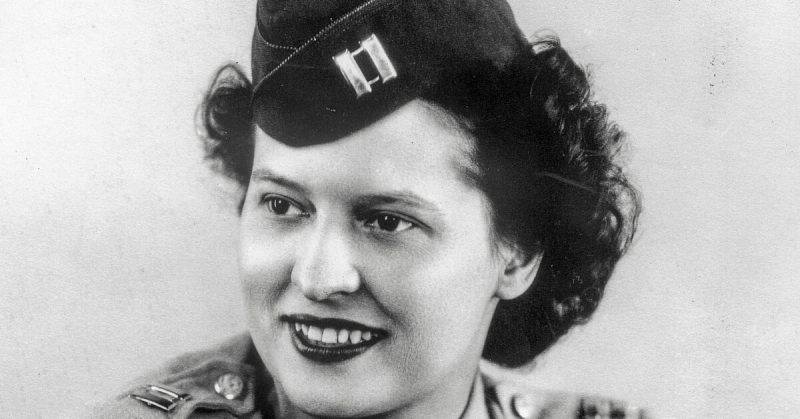The U.S. Army has undertaken a full review into the case of Stephanie Rader, who was nominated for the Legion of Merit in 1946 for her role as an undercover intelligence operative in postwar Poland. This is an important step to the recognition of her bravery, her friends and supporters have wanted for years.
Her officers cited her “unusual coolness and clear thinking” when involved in life-threatening situations when they recommended her for the award. Their recommendation came after a daring border crossing in which she managed to avoid capture by Russian troops.
At the time, Rader was one of only two Polish-speaking operatives working in Poland for the Office of Strategic Services, the precursor of the Central Intelligence Agency. She was denied the honor, most likely because of a bias in the military against intelligence officers and against women, according to historians.
Her friends and her U.S. senator, Mark Warner, took up her cause. Rader, though, died in January at the age of 100 from Parkinson’s disease as her supporters were collecting the forms and records needed for the final stages of getting her award.
The job was all the more difficult because some of the most important records for Rader’s cause might have been destroyed in a fire at the National Personnel Records Center in 1973. That fire ruined a key section of the military’s World War II archive.
In January, Warner wrote to acting Army secretary, Patrick Murphy, to obtain his help. Warner called Rader, “an exceptionally courageous American who served her country with honor and distinction.”
Last month, Murphy responded that he has directed the Army to make a thorough review. He referred to Rader’s service as “heroic.”
Rader’s supporters have been asked to submit an application to an Army review board. They can then review her case and decide whether to grant the award.
“Although Maj. Rader passed away before she received this well-deserved honor, we are hopeful that her bravery will be recognized posthumously,” Charles Pinck, the president of the OSS Society said. The society is dedicated to preserving the spy agency’s legacy and has been instrumental in appealing for Rader’s award.
There is a chance that Rader may receive another award as well. The Senate recently passed a bill to award the Congressional Gold Medal to OSS veterans. A companion bill in the House needs 290 cosponsors to become law.
Rader will be buried June 1 at Arlington National Cemetery next to her husband, General William S. Rader. He was a bomber commander who survived being shot down over the Pacific. He also led one of the most famous raids into Nazi Germany and was a recipient of the Legion of Merit. He died in 2003. They had been married for 57 years.
An honorary flyover by the Air Force has been requested for her funeral.
